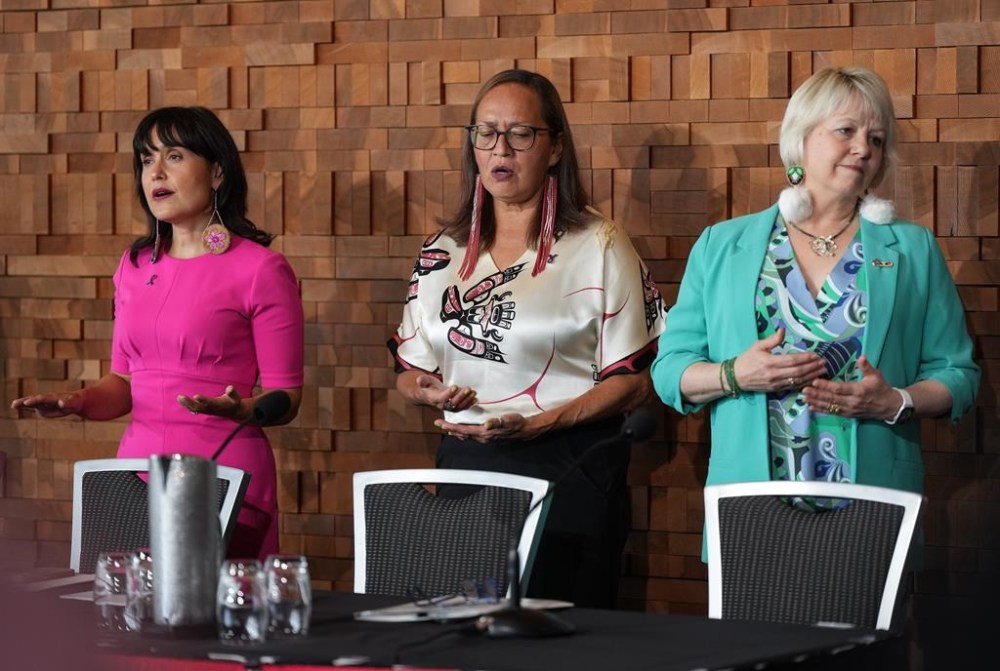‘Gut wrenching’ report: B.C. First Nations life expectancy plunges by six years
Advertisement
Read this article for free:
or
Already have an account? Log in here »
We need your support!
Local journalism needs your support!
As we navigate through unprecedented times, our journalists are working harder than ever to bring you the latest local updates to keep you safe and informed.
Now, more than ever, we need your support.
Starting at $15.99 plus taxes every four weeks you can access your Brandon Sun online and full access to all content as it appears on our website.
Subscribe Nowor call circulation directly at (204) 727-0527.
Your pledge helps to ensure we provide the news that matters most to your community!
To continue reading, please subscribe:
Add Brandon Sun access to your Winnipeg Free Press subscription for only
$1 for the first 4 weeks*
*$1 will be added to your next bill. After your 4 weeks access is complete your rate will increase by $4.99 a X percent off the regular rate.
Read unlimited articles for free today:
or
Already have an account? Log in here »
Hey there, time traveller!
This article was published 21/08/2024 (388 days ago), so information in it may no longer be current.
VANCOUVER – Life expectancy for British Columbia’s First Nations people has dropped by more than six years since 2017, says a report tracking Indigenous health issues.
The report from the province’s First Nations Health Authority says Indigenous life expectancy in B.C. fell from 73.3 years in 2017 to 67.2 years in 2021.
“Clearly, this life expectancy data is gut wrenching,” Dr. Daniele Behn Smith, deputy provincial health officer for Indigenous health, said at a news conference. “It is gut wrenching.”

The report released Wednesday found life expectancy for First Nations males declined by 6.8 years, and 5.2 years for females, for an overall decline of 6.1 years, the report said.
Dr. Nel Wieman, First Nations Health Authority’s chief medical health officer, said the decline was largely due to the COVID-19 pandemic and the province’s opioid overdose crisis.
“One of the most concerning trends noticed in this report is the significant decrease in life expectancy among First Nations people,” she said. “The toxic drug crisis and COVID-19 are the two main drivers of this decrease.”
Wieman said First Nations people in B.C. account for about four per cent of the province’s population, but between 14 per cent and 19 per cent of toxic drugs deaths.
B.C.’s Coroners Service reported last month that there had been 1,158 toxic drug overdose deaths this year, a drop of about nine per cent over the same period in 2023 when 1,279 deaths were recorded.
Wednesday’s report updates monitoring of First Nations health and wellness indicators that is being conducted from 2020 to 2030, and follows the release of a 2021 report.
Wieman said the new report shows some modest improvements to health and wellness but also reveals gaps in B.C.’s health and support systems that fall short of meeting responsibilities to First Nations people.
“When I think of data like this, I think of my young grandchildren,” she said. “I want them to experience the best health and wellness they can.”
Wieman said the report notes an improvement in high school graduation rates among First Nations students and a drop in Indigenous infant mortality, but when it comes to the number of physicians in B.C., only 0.39 per cent of doctors self-identify as First Nations.
She said despite increasing graduation rates among First Nations youth, the education system must create an environment where young Indigenous people consider careers in medicine.
Some 74.2 per cent of First Nations students graduate from high school, while the percentage of non-Indigenous graduates is 93.9 per cent, said the report.
Dr. Bonnie Henry, B.C.’s provincial health officer, said the report indicates “modest improvement,” but “we’re not where we need to be yet.”
She said the data in the report help tell a story of where B.C. has been when it comes to health and wellness for First Nations people and where it must go.
Henry described the report as a “two-eyed seeing,” which included Western medicine and approaches and Indigenous knowledge and ways of seeing.
— By Dirk Meissner in Victoria
This report by The Canadian Press was first published Aug. 21, 2024.
